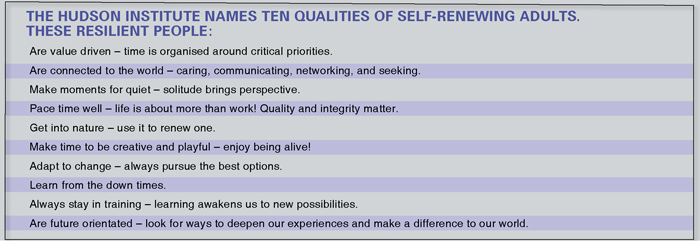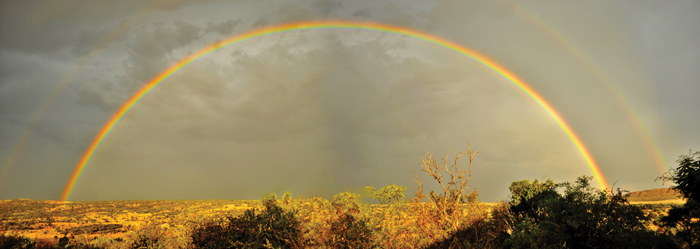April 2022
| JENNY MATHEWS, MANAGEMENT AND DEVELOPMENT SPECIALIST AND EDUCATOR |
 |
Lately, instead of monitoring weather reports in the face of the normal blue, searing hot skies which seemingly stretch forever, we are now anxiously counting the dry days and praying for enough heat units to grow our crops. Nothing has really changed. Farming is still full of challenges.
It’s been a different season, hasn’t it? It’s not every day that you hear a farmer muttering about too much rain. In my neck of the woods the farmers have struggled to get into the lands to get their fields planted. It has even been a challenge nurturing the young summer crops like getting the maize, sunflowers and beans to emerge; or splash muddy tractors through muddy fields to wage the annual war against weeds and pests.
RESILIENT FARMERS DO THE RIGHT THING
Farmers are still straddling two worlds – one outside, facing the elements and nurturing their crops; and the other in the office, keeping records and balancing the books. Skill is required to manage our businesses in difficult times since anxiety, stress and depression make farmers vulnerable. Vulnerable people don’t always make the best decisions. A Colorado State University study revealed that among behavioural pattern spikes observed are increased family tensions, more substance abuse and more frequent on-farm accidents and injuries.
The quote by the American author Robert Jordan said: ‘The oak fought the wind and was broken, the willow bent when it must and survived.’ We all face hardships. The difference lies in how one reacts to difficult circumstances. It comes down to resilience. Resilient people are ones who have well developed leadership competencies and are most likely to choose the ‘fight’ rather than the ‘flight’ option. These individuals seek solutions and reach out for help. Resilience helps us to adjust our thinking away from a sense of lack towards a path where we concentrate on our options – it moves us from inaction to action on the farm and in our relationships.
A spirit of resilience spurs one on to do the right thing for example in managing the farm finances. After so many years of drought there are still farmers struggling to pay off their mountains of debt. A resilient farmer is one who does not bury his head in the sand and pretend it does not exist. Instead he faces his debtors and discusses his situation. Farming debt is not unusual but it requires an astute business mind and visionary to manage it properly. Once the books have been balanced there are two scenarios: (1) There is money to pay off the debt; or (2) There isn’t money to pay off the debt.
In the first case the resilient farmer will do the right thing and repay the debts he can. This is empowering and has a lasting impact on building a good reputation which may be very helpful into the future. There is little to be said about the man who can repay but doesn’t; and rather spends the money on something else more appealing… his reputation is also being established – and not in a good way!
In the second scenario where the debts are many and there is not enough money to spread around, then the right thing to do is to be brave. A resilient farmer will get his financial reports in order and go and discuss the situation with his financiers and try to make plans as to how the repayments could be made over a more realistic period of time. It is basically not helpful to stay quiet and hope the lender has forgotten that money is owed to them.

BECOME A LEADER
Bob Milligan of Cornell University believes we should constantly be challenging ourselves with how we do business today – we need to ‘think outside the farm’ as the way to lead our farms. Leadership says we know what direction we are moving in; we can focus on what is important and we view challenges as an opportunity rather than as a threat.
A leading futurist and a trends and innovations expert, Jim Carroll, observes, ‘Some people see a trend, and see a threat. Innovators see the same trend and see an opportunity.’ He believes we need to acquire ‘business agility’. This empowers us to respond to external trends, to spot opportunity, ward off challenge and align resources for fast success. Farmers who maintain this is not relevant to them, make a mistake. This is exactly why some for example, have successfully embraced the futures trading platforms while others stand by frustrated and negative.
How do we achieve this business agility while we contend with issues which make us feel burdened and overwhelmed? We refocus on the big picture and get a vision for our operations where we can thrive within the change. Carroll suggests that we focus on the following issues:
In spite of the many ongoing challenges a farmer must face, it is important that he enjoys his life, family and work. The key to happiness, resilience and staying-power remains in our own hands.
Farmers cannot always know what they will be facing from one season to the next. Who could have imagined such a wet 2021/2022 season? Who could have predicted the pandemic we are dealing with right now? What resilient farmers can do, is make work of knowing themselves, knowing their business, and getting creative about addressing the constantly changing environment. Farmers need to decide what’s important to them and do what it takes to chase after those things!
‘If you want to make small changes, change the way you do things. If you want to make major changes, change the way you see things.’ (Don Campbell, a Canadian rancher).

Photo: Renette van der Merwe.
Publication: April 2022
Section: Pula/Imvula